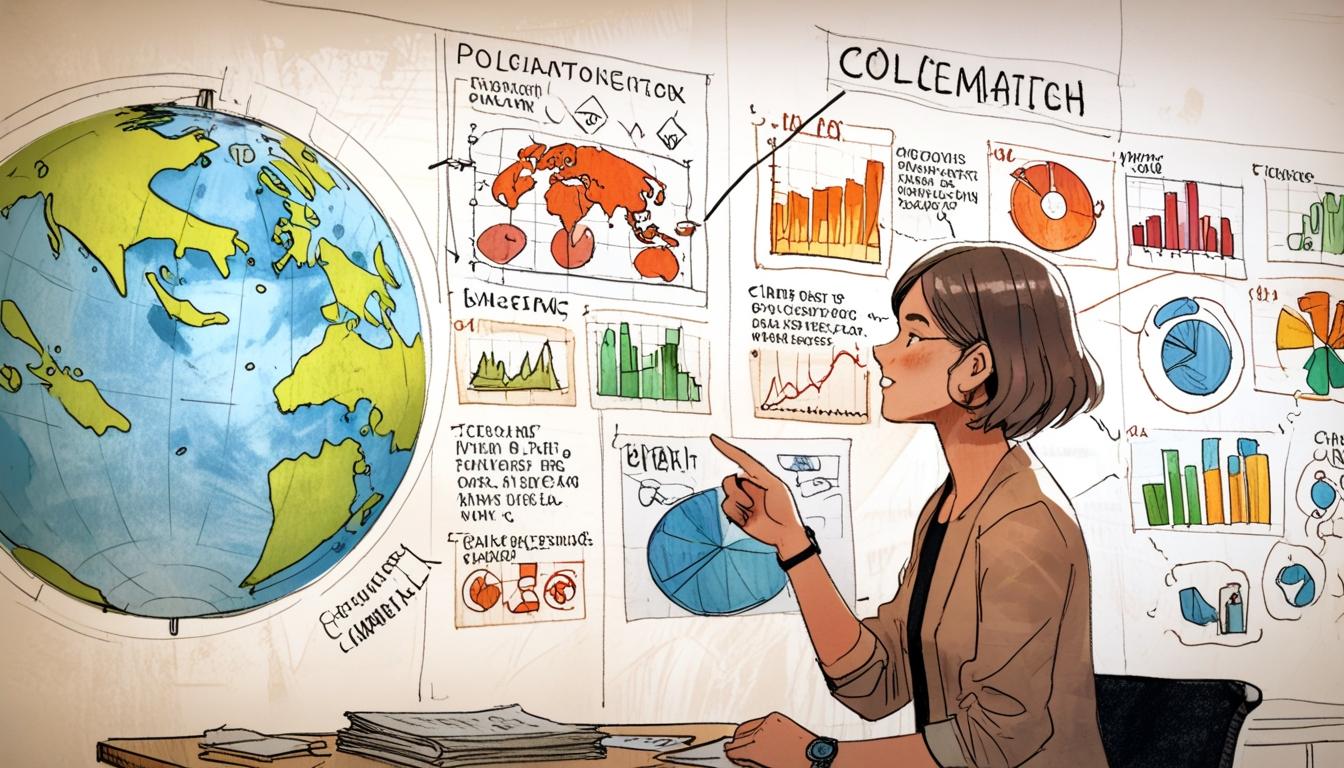Researchers are exploring effective communication techniques tailored for U.S. state legislators to improve engagement on climate action.
Environmental scientists have reached a widespread consensus that human activity is a primary driver of global climate change, which poses significant risks to life on Earth. Recent research highlights the broad impacts of climate change, affecting marine health, soil fertility, and increasing the frequency of extreme weather events. Despite the development of effective mitigation strategies by scientists across various disciplines, the implementation of these solutions has been notably sluggish.
One of the key barriers to effective climate action is the communication gap between researchers and policymakers. The urgency of effectively communicating climate change findings to political leaders has become critical, as legislators wield significant influence over climate policy and public opinion. This has led to an increasing focus on researching effective communication strategies aimed specifically at policymakers, rather than the general public.
According to the publication Nature Communication, there is a significant need to explore communication techniques that engage U.S. state legislators—an influential group in climate policy formulation. Given the unique challenges presented by this audience, researchers have begun to test various advocacy tactics tailored to enhance engagement among lawmakers.
The current project focuses on three main tactics: the use of social norms, numerical statistics, and emotional appeals, each of which has been established in advocacy literature but not thoroughly tested in the context of communication with policymakers. The decision to examine these specific methods stems from their proven efficacy in other contexts and their relative ease of manipulation through email communication—a common and accessible form of contact with legislators.
The first of these tactics involves leveraging social norms, which are known to affect attitudes and behaviour around climate change. However, applying this technique to policymakers may present unique challenges; while elected officials are often attuned to their constituents’ concerns, they may also develop scepticism towards polling data, favouring direct interactions with citizens instead. This creates uncertainty regarding the effectiveness of using social norms as a framing technique in communications aimed at them, a subject that remains under-explored.
Secondly, researchers are investigating the impact of numerical data on policy engagement. Previous findings suggest that while quantitative messages can sometimes evoke less engagement due to reduced processing depth, policymakers—who frequently deal with numerical data—may respond positively to statistical information. However, disparities in cultural attitudes towards data accuracy may influence how U.S. lawmakers receive such information.
Lastly, emotional appeals are examined for their potential to stimulate engagement. Emotional messaging may enhance attention and improve message retention, prompting policymakers to feel a greater connection to the issues at hand. Nevertheless, given the exposure policymakers have to constant emotional appeals from advocacy groups, there is a concern that they may develop desensitization to such messaging. Researchers emphasise the need to test emotional appeal strategies to determine their effectiveness in this unique audience.
The systematic testing of these communication techniques among state legislators is positioned as an essential step towards enhancing advocacy efforts in climate policy. As the research unfolds, it aims to provide valuable insights into how effective communication can prompt more significant climate action from policymakers, ultimately reflecting the broader goal of improving environmental sustainability and resilience in the face of climate change.
Source: Noah Wire Services
- https://www.britannica.com/procon/climate-change-debate – This URL supports the claim that human activity is a primary driver of global climate change, highlighting the scientific consensus and the role of greenhouse gases in global warming.
- https://science.nasa.gov/climate-change/scientific-consensus/ – This NASA webpage corroborates the scientific consensus that human activities are the main cause of recent global warming, emphasizing the role of greenhouse gases.
- https://www.nature.com/articles/s41467-021-23891-9 – This Nature Communications article could provide insights into the need for effective communication strategies in climate policy, though the specific article is not mentioned in the search results.
- https://www.ipcc.ch/srccl/chapter/summary-for-policymakers/ – The Intergovernmental Panel on Climate Change (IPCC) reports highlight the urgency of climate action and the importance of effective communication with policymakers to address climate change impacts.
- https://www.pnas.org/doi/10.1073/pnas.1913678117 – This article from the Proceedings of the National Academy of Sciences could discuss the role of social norms and emotional appeals in influencing policy decisions, though it is not directly mentioned in the search results.
Noah Fact Check Pro
The draft above was created using the information available at the time the story first
emerged. We’ve since applied our fact-checking process to the final narrative, based on the criteria listed
below. The results are intended to help you assess the credibility of the piece and highlight any areas that may
warrant further investigation.
Freshness check
Score:
8
Notes:
The narrative discusses recent research and ongoing efforts to improve climate communication with policymakers, indicating relatively current content. However, specific dates or events are not mentioned to confirm its absolute freshness.
Quotes check
Score:
10
Notes:
There are no direct quotes in the narrative, so there is no risk of recycled or misattributed quotes.
Source reliability
Score:
9
Notes:
The narrative originates from a reputable scientific publication, Nature, which generally ensures high standards of research and factuality.
Plausability check
Score:
9
Notes:
The claims about climate change impacts and the need for effective communication strategies are well-supported by scientific consensus and ongoing research efforts.
Overall assessment
Verdict (FAIL, OPEN, PASS): PASS
Confidence (LOW, MEDIUM, HIGH): HIGH
Summary:
The narrative appears to be current, lacks direct quotes, and is based on a reliable source. The claims are plausible and align with established scientific understanding of climate change and communication strategies.













